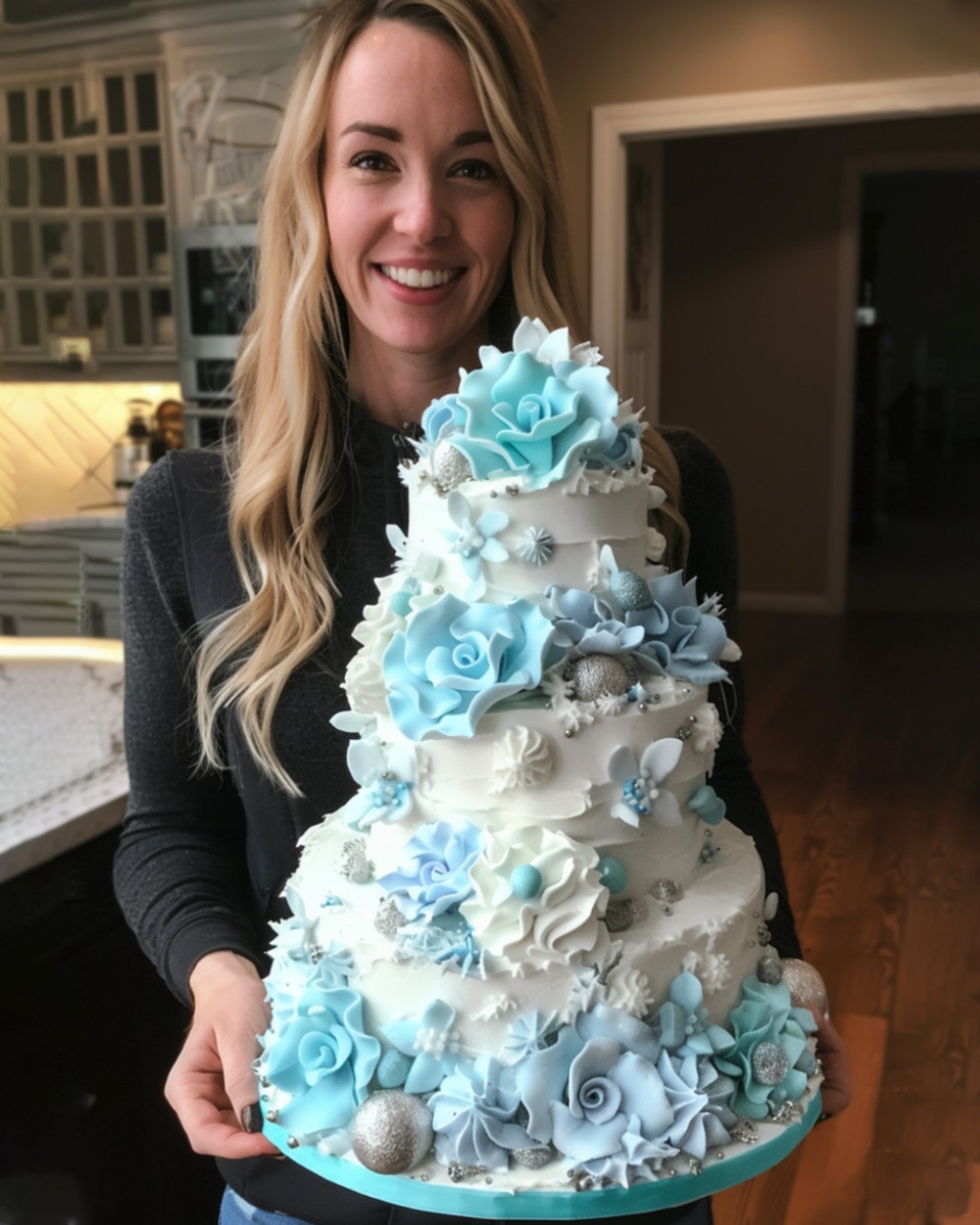For years, Jacqueline had been dismissed by her in-laws as “not good enough.” Then, unexpectedly, her brother-in-law asked her to bake a cake for his birthday. Hoping this was a sign of acceptance, she arrived at the celebration, only to be stunned by the decorations and the true purpose of the gathering.
From the moment Jacqueline and her husband, Tom, got engaged, it felt like she was an outsider in his family. Every family gathering was a battle, and she was always left feeling like the wounded one.
She vividly recalled her first encounter with her mother-in-law, Alice. With a cold, condescending smile, Alice said, “You’re sweet, dear, but Tom… he’s always been ambitious. You’re just so… simple.”
The message was clear: Jacqueline wasn’t good enough.
Jack, Tom’s brother, was even worse. At every family event, he made it his mission to undermine her confidence.
“Hey, Jacqueline,” he’d say mockingly, “I didn’t realize being a ‘professional cake decorator’ was such a tough job. Must be exhausting, all that frosting and free time!”
When Jacqueline tried to stand up for herself, to show she wasn’t the passive person he thought she was, Jack would lean back with an exaggerated gesture, pretending to back off. “It’s just a joke. Relax!” he’d say, but it wasn’t funny. It was a calculated attack, meant to keep her insecure and off-balance.
Every time she mentioned it to Tom, he offered the same tired excuse. “They don’t mean it, Jackie. They’re just set in their ways.”
But the dismissive stares, the gossip, the subtle exclusions — nothing Tom said could erase the truth that Jacqueline had always been an outsider, never truly welcomed by his family.
The sting of rejection made her pour herself into her baking. Every perfectly crafted cake became her silent cry for acceptance.
Baking was her language of love, a vulnerable offering to a family that seemed determined to keep her at arm’s length. Every holiday became a performance, each dish and gift a desperate attempt to prove her worth.
At Thanksgiving, she’d arrive early, offering to help Alice in the kitchen. But Alice would dismiss her with a polite, “I’ve got it, Jacqueline. Why don’t you set the table instead?” The message was always the same — she wasn’t truly part of the family.
Christmas brought handmade gifts, each one carefully crafted with love, but they were always met with forced smiles before being forgotten. Jacqueline began to believe that love wasn’t something she could bake into existence.
Then, out of nowhere, Jack sent her a text: “Hey, Jacqueline, could you make a cake for my birthday this weekend? Nothing fancy, just plain. Thanks.”
“Plain?” The word echoed in her mind. Jack, who had always criticized her, now wanted something simple? It felt strange — was this a peace offering, or another cruel joke? Still, she couldn’t say no. She was the family baker, after all, the one who remained in their lives through her desserts and silent endurance.
With every ounce of hope and heartache, she baked a three-tier cake, decorated in soft blue and silver buttercream, with delicate hand-painted fondant flowers. It was understated yet elegant — a masterpiece, representing everything she had tried to be for this family: perfect, unseen, and invisible.
On the day of the celebration, Jacqueline arrived at the event space. But the moment she stepped inside, her heart shattered.
“Bon Voyage!” signs sparkled in gold and white. Her hands trembled, the cake now feeling heavy with more than just sugar and frosting. Photos on the walls showed Tom with another woman, their intimacy unmistakable. She realized the truth — this wasn’t a birthday party. It was her funeral.
Jack approached with his usual smug grin. “Nice cake,” he said with a cruel glint in his eye. “Really fits the theme, don’t you think?”
Her grip on the cake board tightened, her knuckles white with fury. She wanted to scream, to throw the cake, to shatter something — anything — to match the destruction inside her heart.
“What is this?” she demanded.
“Tom’s going-away party!” Jack said casually. “Didn’t he tell you he was leaving? Moving in with her?”
Jacqueline turned to see Tom, his hands stuffed in his pockets, the woman from the photos standing behind him, possessively holding his arm. Tom’s voice dripped with indifference as he explained, “It’s not working between us. We’ve grown apart. I’m moving to Europe with her. The divorce papers will be ready soon.”
Divorce papers. The words felt like a death sentence. Jacqueline looked around the room — Alice, Jack, the rest of the family. They had all known. This wasn’t just Tom’s betrayal; it was a conspiracy.
“You asked me to bake this cake to celebrate your brother’s affair?” she asked.
Jack’s response was callous. “You’re good at it. Why not?”
The cake, so carefully crafted with love, now felt like a doomed offering — a masterpiece made to be destroyed.
But Jacqueline wasn’t done.
“If you want a performance,” she said, her voice calm, “I’ll give you a masterpiece.”
The room fell silent as she walked the cake to the center table. “This cake is a masterpiece,” she began, her gaze locking with Tom’s, “crafted with care and love, qualities I’ve brought to this family. It’s beautiful on the outside, but like all things, the real test is beneath the surface.”
She cut a slice and handed it to Tom. “For you,” she said, her voice steady. “A reminder that sweetness doesn’t just happen. It takes effort — something you’ve clearly forgotten.”
She offered the next slice to the woman. “And for you, a taste of what it takes to maintain what you’ve stolen.”
The final slice went to Jack. “Thanks for inviting me to this unforgettable event. I’ve had my share of people who only see me when it suits them.”

